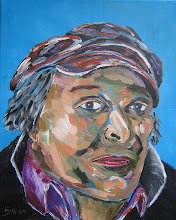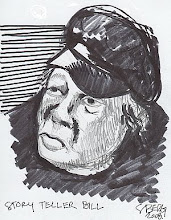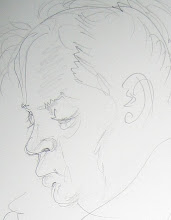By Bill Longworth
October 5, 2011
As I sat in London’s Lyceum theatre with the beautiful young oriental woman I was with that Saturday night, minding my own business as usual, a stodgy old man sitting alone next to me started up a “small talk” conversation.
“Where you from?” he inquired.
Unimpressed, I looked at the guy not really interested in conversing with him. He was a little overweight and had just a smidgeon of white hair haloing his head. He was dressed in an unpressed brown suit, looked every day his age of at least 80, and, as if for some kind of security, he incessantly fondled a tattered well-worn “leather bound” novel. The little bit of hair he had was pulled back eccentrically into a three inch ponytail at the back of his head.
“Toronto,” I responded in a civil, if not so respectful tone, “And you?”
“Chicago,” he said, “But I spend about half the year here staying at the Reform Club.”
If I’d known then what I know now about the Reform Club, I’d suspect he was trying to impress me, or more probably, the Lady I was with that evening.
“I’m Professor Emeritus of Constitutional Law at the University of Chicago. Name's E. Blythe Statton Jr.,* he said, “But you can call me Blythe.”
“I’m Bill,” I said rather apologetically, realizing my “handle” was not nearly as impressive as his, but I suppose I could have jazzed it up a bit by identifying myself as William Longworth, the third.
“And the lady....what’s her name?” he continued, rather aggressively I thought, showing considerable interest in my companion so early in the conversation.
“She’s Helen and she came with me from Canada,” I responded, hoping this answer would give him the message that she was not only with me tonight but that she was also my travel mate.
At this the lecherous old man, after clearly establishing his credentials with both of us, leaned over me and started conversing more directly with Helen.
“I spend a lot of time in London,” he said, “And perhaps I could show you and Bill around the town. Dinner perhaps at the Reform Club Monday evening, as there’s a James Bond film shoot there tomorrow.”
Amazing a total stranger should offer us a dinner in what sounded like such an exclusive place...or perhaps he was arranging a date with Helen and I was merely the “third wheel” tag-along guest.
Anyway, after the theatre, we walked Blythe westward along the Strand towards Pall Mall where the Reform Club was located. We had to part company though at the Charing Cross Tube Station and head south across the Thames on the Hungerford Footbridge to the Waterloo Train station for the 40 minute train ride west to Staines, the London suburb where we lived.
Before splitting, though, we made sure to confirm our plans for the Reform Club dinner. As part of the details, Blythe cautioned me to wear a suit and tie and leather shoes, which also informed Helen of the standard of dinner dress expected of women guests.
The twenty minute walk with Blythe was interesting. He said he had a Rolls Royce in England and another in Chicago. “Women loved riding in them,” he stated, again I guessed for Helen’s enticement.
I was starting to think that Blythe, (despite his appearance, but being impressed with his two Rolls Royces), might be a quite a wealthy guy. I also became impressed with his intelligence when he said he was a Harvard Law Graduate. I wasn’t nearly as impressed when he said his great grandfather invented the elevator brake, which he demonstrated in the Crystal Palace Exposition Hall at the 1854 New York World’s Fair.
I made sure though, before the dinner, to research the Reform Club and the inventor of the elevator brake.
The Reform Club is one of five or six super exclusive by-invitation-only “Gentlemen’s Clubs” on Pall Mall, whose guests are mostly Lords and Ladies, and his great grandfather, the inventor of the elevator brake, was Elisha Graves Otis whose two sons, one Blythe’s grandfather, founded Otis Elevators and installed the world’s first public elevator in a five story Manhattan Department store. The rest, of course, is world class industrial and commercial history.
And the best part, Blythe still writes me from all over the world on his travels and when he visited me in Oshawa two years ago, he commented on how he enjoyed discussing things with me as he said there was so much to learn.
And this from a guy I considered the smartest guy I’d ever met.
I‘ll have to visit him in Chicago to see his whole collection of Rolls Royces and Bentleys going back to the early 1900s, some he said would cost millions of dollars to restore.
And, oh yes, I do credit Blythe’s interest in Helen for being the magnet for my continuing association with Blythe.
And I’ve learned beyond a doubt, It never hurts to have beautiful woman on your arm.
*Blythe’s surname, whose mother was one of the daughters of the founder of Otis Elevator Company, has been changed to protect his identity
Wednesday, October 5, 2011
It Helps to Have...
a Beautiful Woman On Your Arm ©
Labels:
bill longworth,
oshawa,
otis elevators,
Reform Club,
story teller bill
Subscribe to:
Post Comments (Atom)



No comments:
Post a Comment